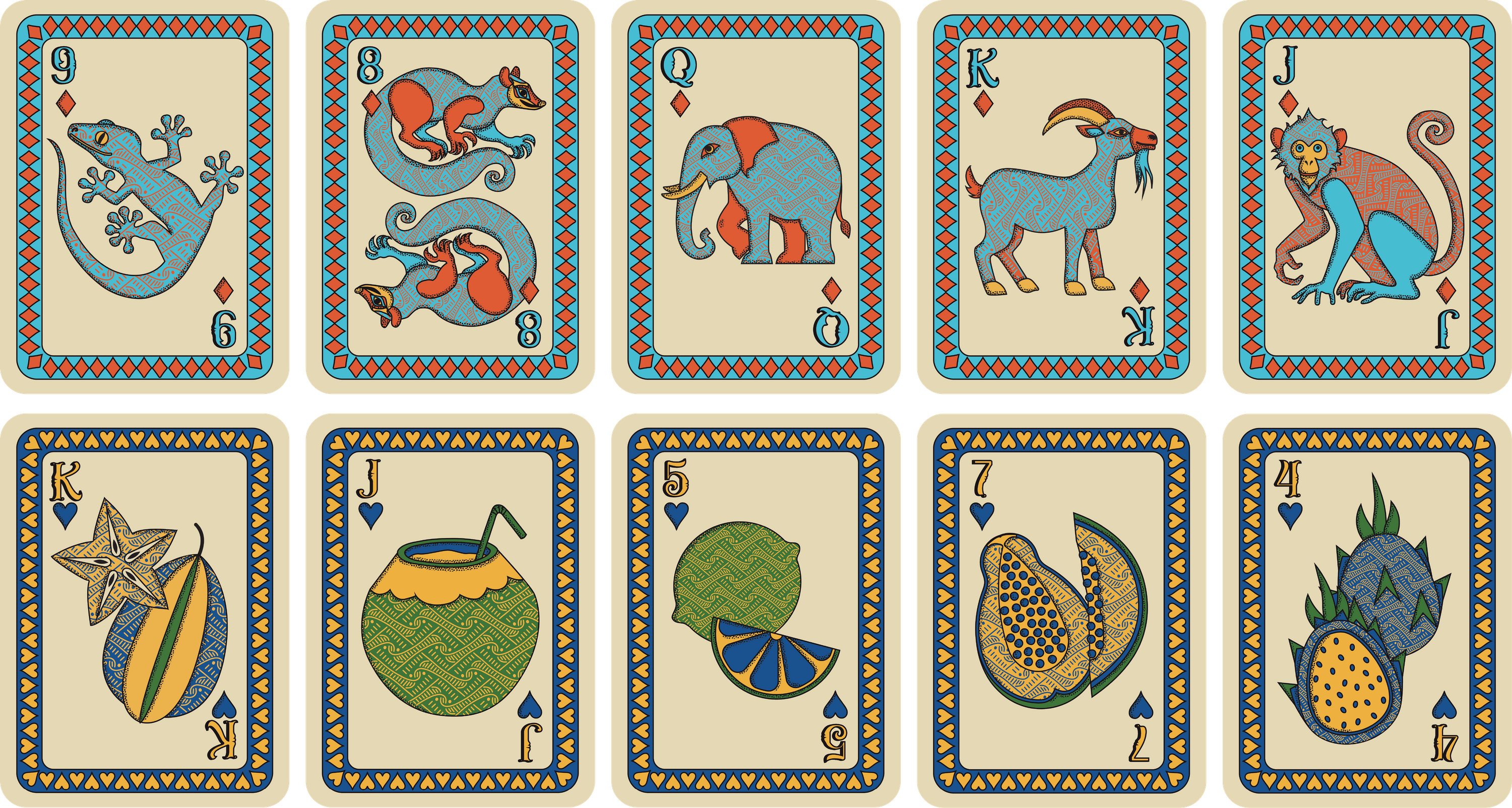Playing cards have been used for centuries for entertainment, guidance, and connection, and they continue to remain popular despite the increasing shift to digital technologies and environments.
A number of Pratt students and faculty have recently tapped into the qualities that make playing cards so beloved—their ease of use, clever designs, and potential for community-building—to make their own decks, either as standalone games or as part of larger research projects.
Ying Fu, MS Packaging, Identities, and Systems Design ’24, developed tarot cards that explore mental health through different prompts about love, friendship, situations, work, and obstacles as part of her thesis project.
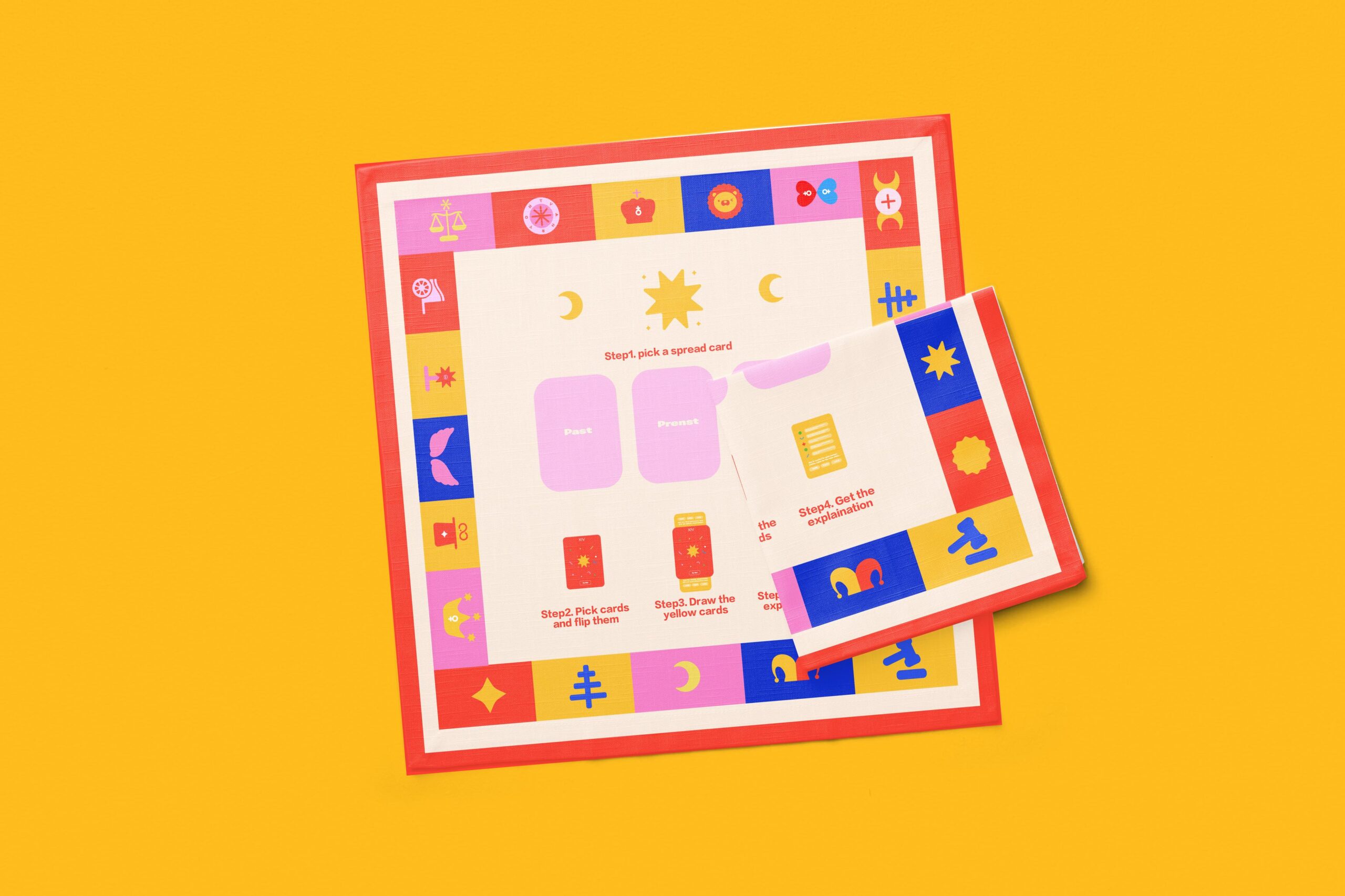
Saphrinna Phin, BFA Communications Design ’24, designed cards for a project called “Khmer Joy” that aims to bring greater wellbeing to Cambodian-Americans. Each card features a prompt based on one of several categories such as “mindful observation meditation,” “affirmation,” and “walking meditation.”
“For generations, the Cambodian community has relied on healing practices such as meditation, arts, water blessings, and chanting to promote wellness and strengthen community bonds,” Phin explained in her thesis project description. “It is crucial to acknowledge and preserve these ancestral traditions that help reconnect the community, foster healing, and amplify existing cultural strengths.”
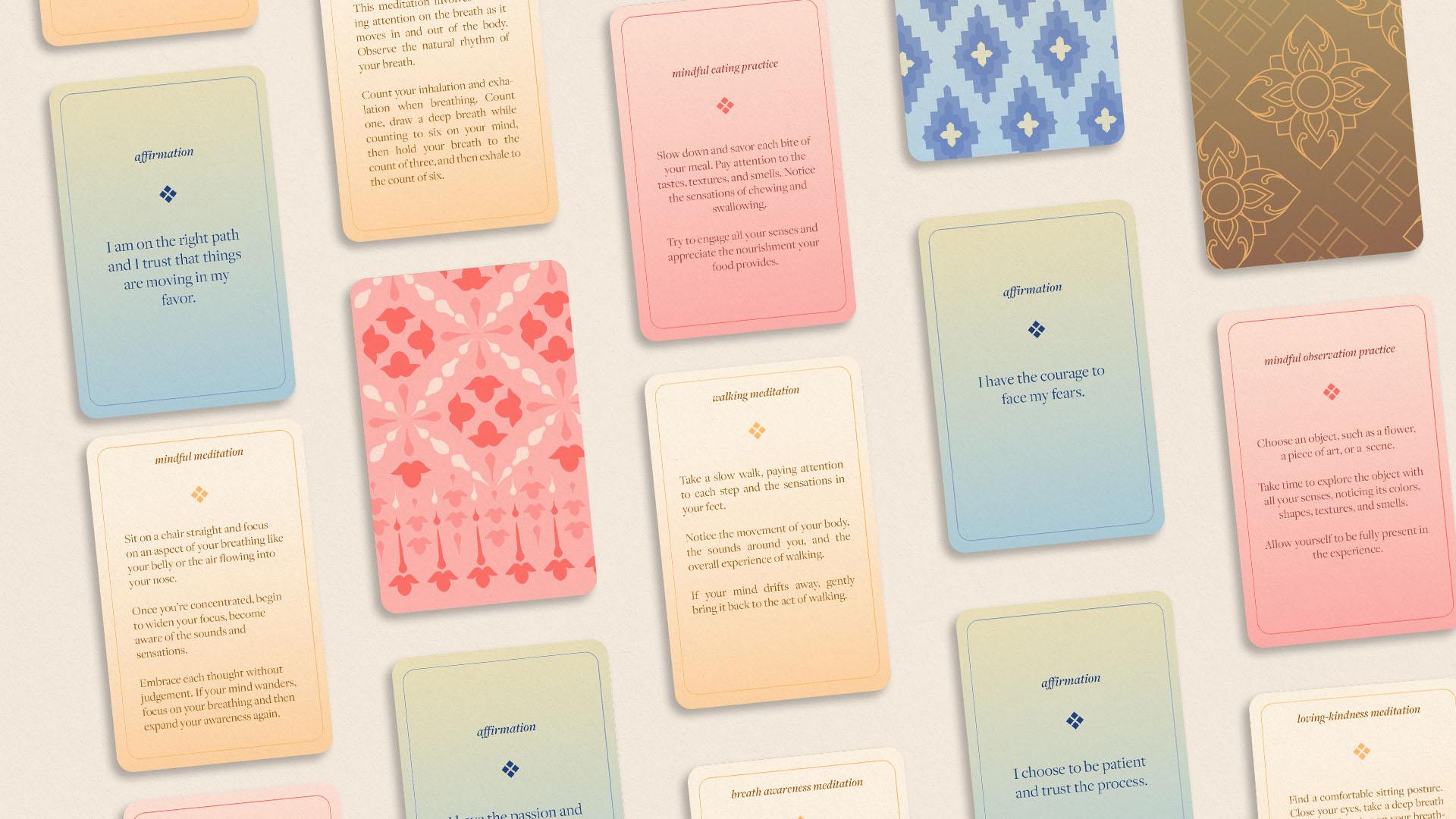
Students have come up with other creative uses for card decks. Catherine Nina, BFA Communications Design ’24, created a colorful deck showing the complexity of Indonesia through illustrations of everyday objects, landmarks, fauna and flora, and tropical fruits.
“My favorite part of this project was printing out my designs and showcasing them at the 2024 Pratt Show,” Nina wrote in her thesis project description. “It was an incredible experience and a wonderful way to cap off my college journey. I am incredibly proud to represent my country through my work and to share my culture and identity with others.”
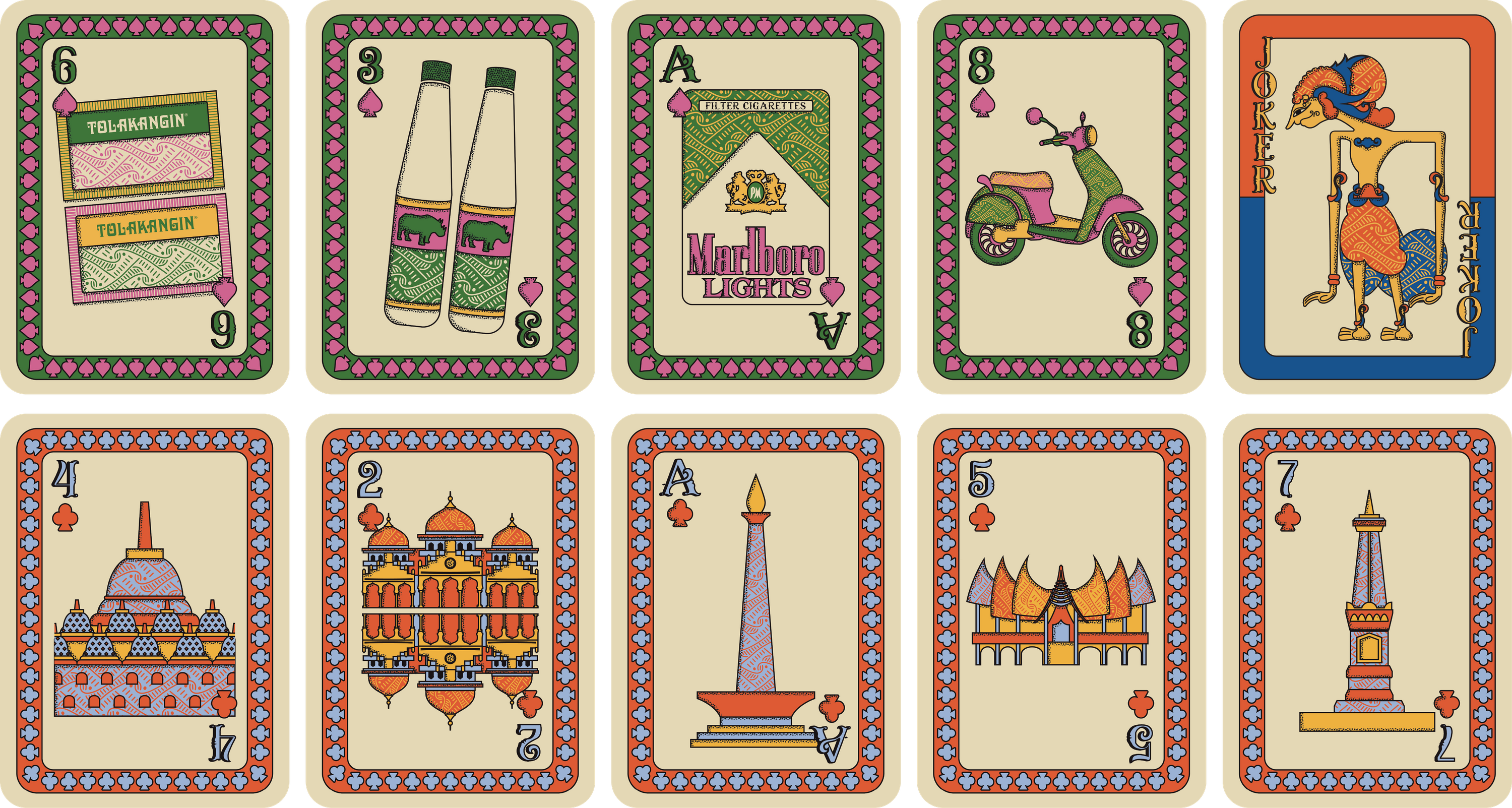
Chelsea Li, BFA Communications Design ’24, reimagined the classic board game Monopoly with a deck and board inspired by New York’s Chinatown. The board itself features local businesses, transportation options, and parks, and the cards use cultural references to move the game along.
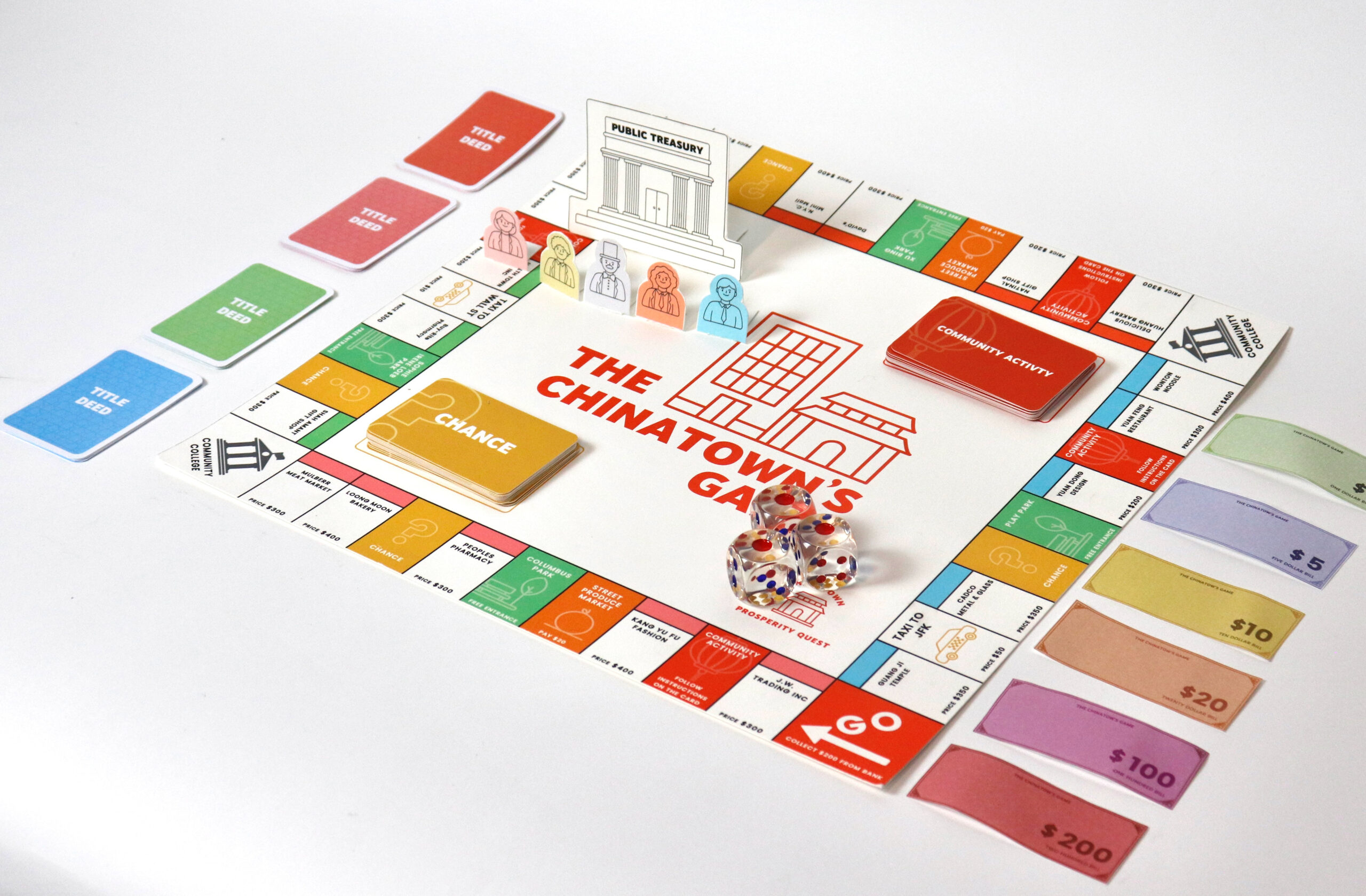
Card decks have also popped up in contexts beyond thesis projects.
Sai Shruthi Chivukula, assistant professor in the School of Information, and Shikha Mehta, MS Information Experience Design ’25, created a deck of cards to “expose the un/intentional manipulative and persuasive roles designers take during generating designs” and steer users toward more productive and empowering roles.
The “Anti-Heros” deck, which was on display at the Research Open House 2024, includes cards that describe archetypal characters that obstruct or derail the design process such as the “trap-setter,” “camouflager,” and “empathy manipulator.” If the cards are flipped over, empowering archetypes such as the “straight-talker,” “liberator,” and “unveiler” are revealed.
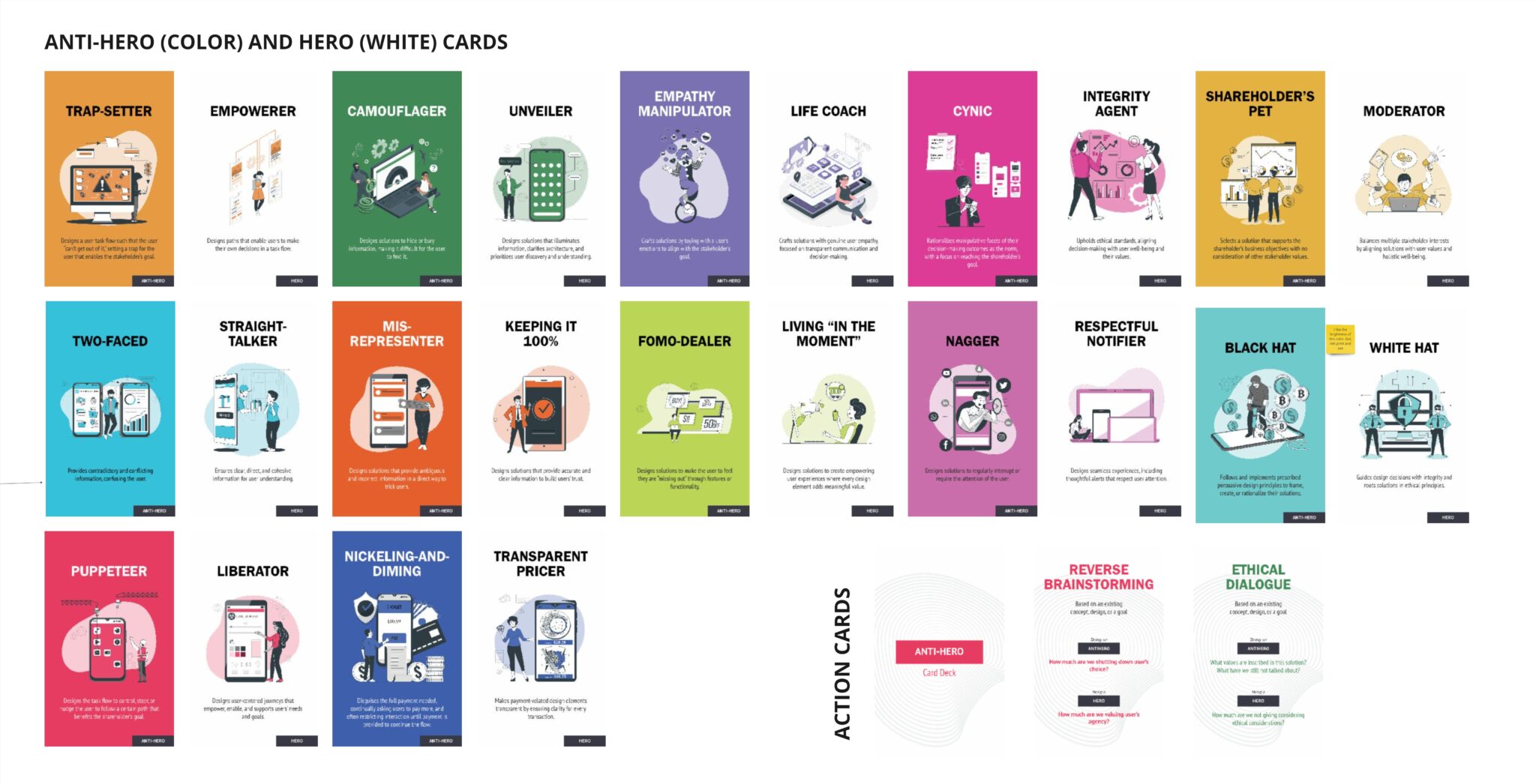
Erica Weidner, MSLIS ’24, Gabriella Evergreen, MSLIS ’24, Meina Naeymirad, MSLIS ’23, and Claudia Berger, MSLIS ’21 and visiting assistant professor in the School of Information, won the Best Group Project Award at the InfoShow24 for their project “I Called to Her and She Answered Me: A Reading from the Oracle for Techno-Spiritual Feminism” that included a deck of oracle cards.
“This deck was created to incite conversations and ideas based on nine archetypes, symbols, and dualities in order to teach the gynoid on important lessons on gender, spirituality, and technology as a simulated lesson on AI training as well as a pedagogical tool for exchanging cultural history and knowledge,” they wrote as part of the project description.
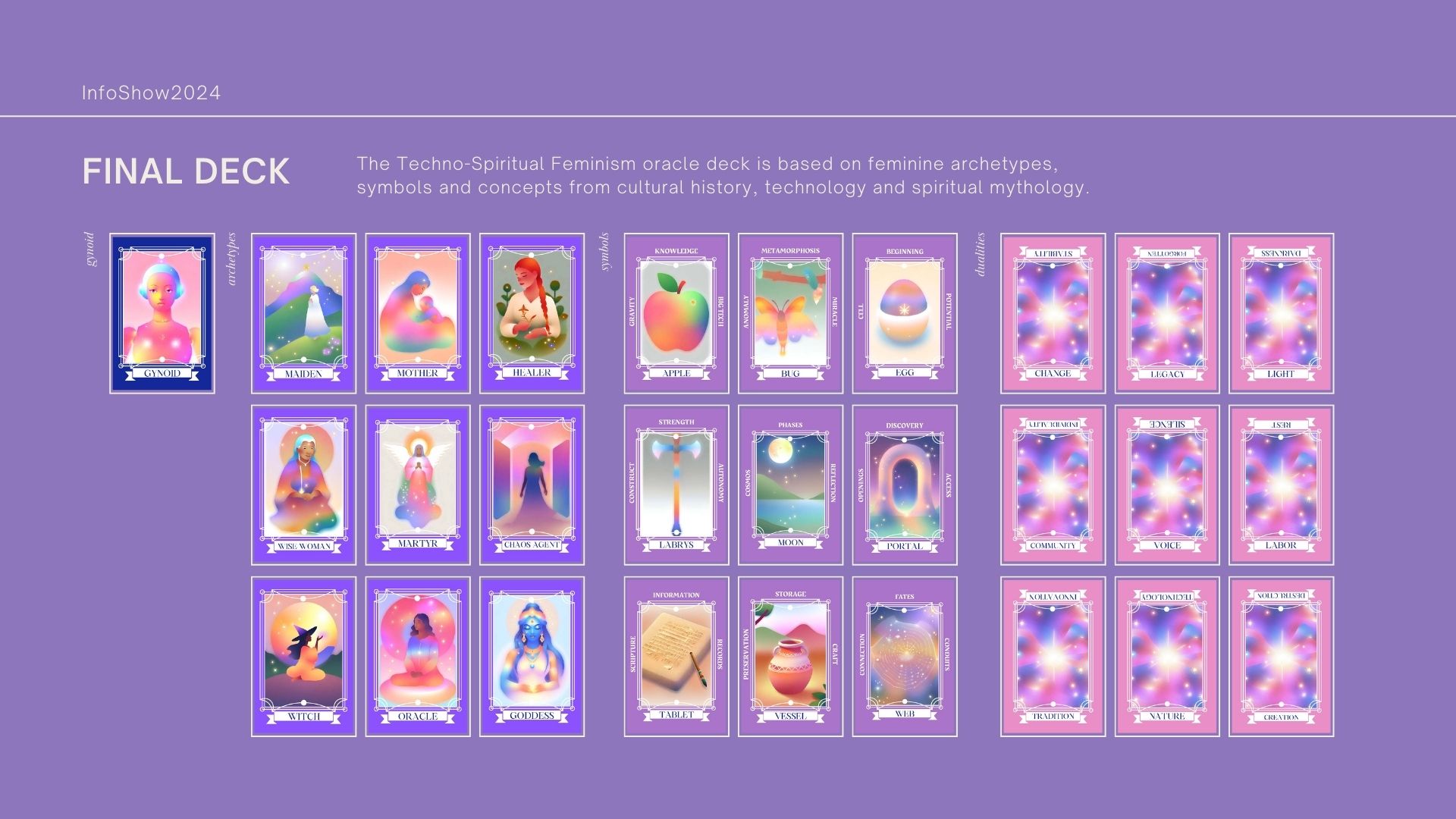
Attendees at the 2023 HASTAC Critical Making & Social Justice conference, held on Pratt’s Brooklyn campus, received Multispecies Design Cards designed by Nancy Smith, assistant professor in the School of Information, and Abby Hurst, MSIXD ‘23. The cards feature illustrations of plants and nonhuman animals and words such as “thrive,” “futures,” and “materiality” that are meant to spur creative thinking.
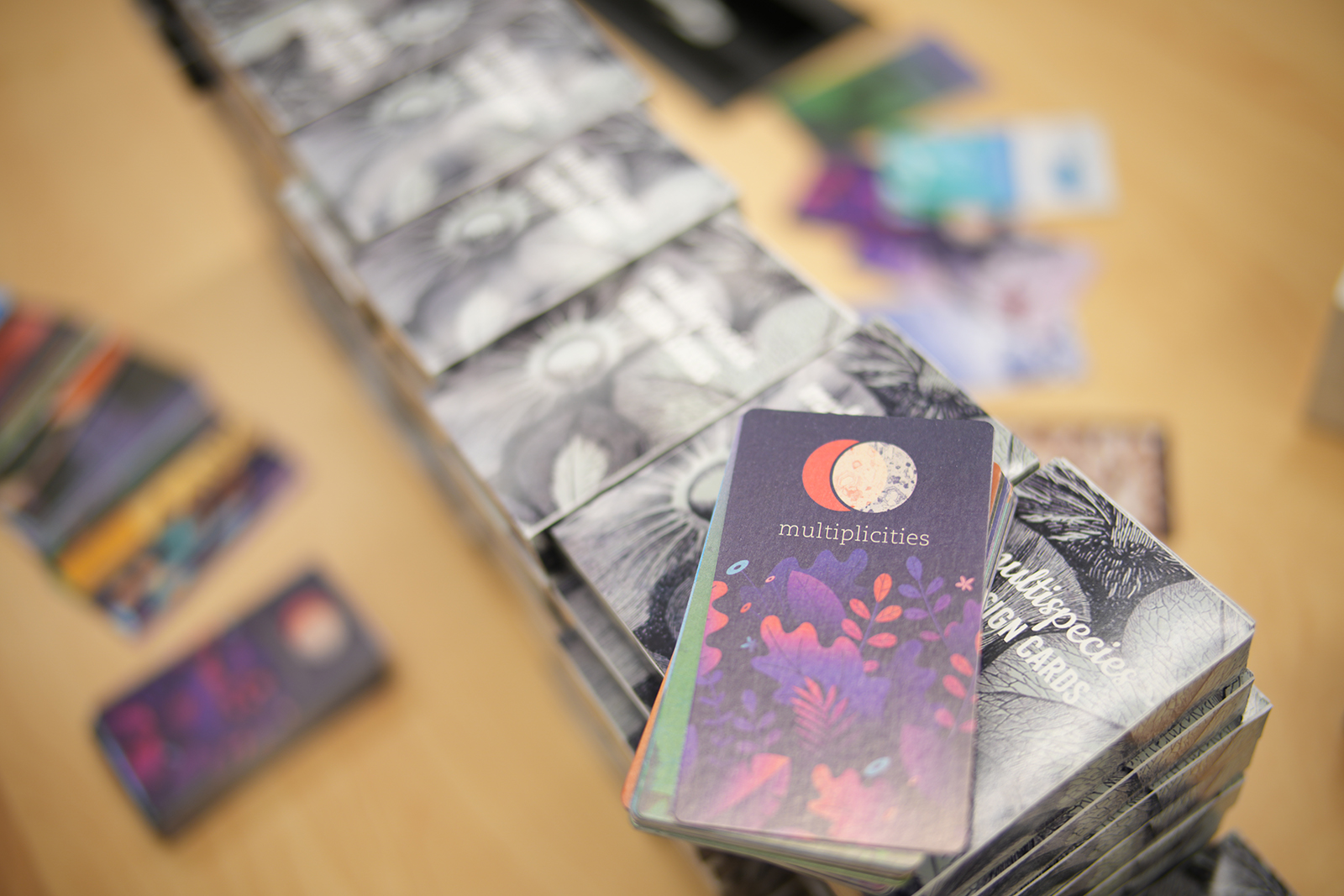
These projects infuse traditional card design with new ideas and possibilities, fostering community and spurring creativity in the process. As these decks find new audiences, they invite us to gather, play, and explore—a powerful reminder that, in an increasingly digital world, the simple pleasure of drawing cards can still bring people together.
